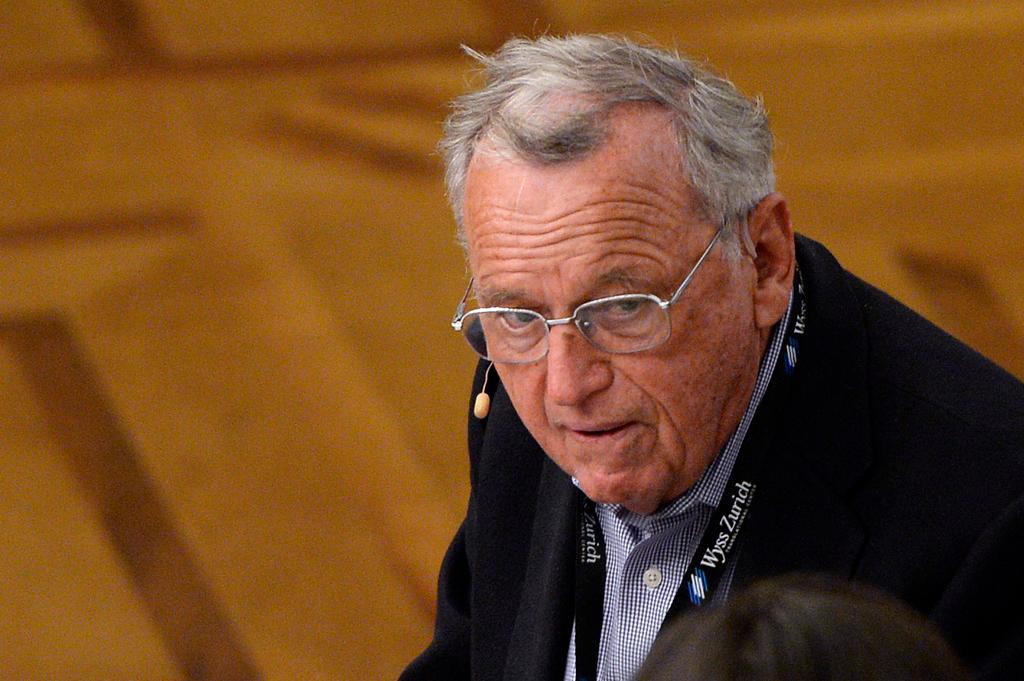Universities drive ahead with corporate tie-ups

Last December, billionaire Hansjörg Wyss was applauded for gifting two universities CHF120 million ($123 million) to turn medical research into cures. Four months later, the links between pharmaceutical firms and universities are receiving less favourable reviews.
A recent webinar hosted by Zurich’s Federal Institute of Technology (ETH) and the economic promotion body Greater Zurich Area is evidence that the business of marrying the academic and corporate worlds is a growing reality.
The webinar was a sales pitch aimed at international firms, particularly in the United States, highlighting the benefits of teaming up with ETH to boost commercial projects. ETH currently has 320 industry collaborations – including Disney, IBM and Oracle Labs – worth around CHF350 million every year.
Private sector funding of tertiary education is commonplace, not just in Switzerland but the whole world (see graphic below). In December, Swiss Education and Research Minister Johann Schneider-Ammann praised the Wyss Translational Center (kickstarted by Hansjörg Wyss’s money), saying that such collaborations are “simply indispensable” for maintaining the global reputation of Swiss research.
Switzerland’s leading universities compete for the world’s best research talent and partnerships with big multinationals which help secure top spots in global academic ranking tables.
But the push for corporate cash can also throw up pitfalls. Swiss public television (SRF) recently illustrated this point by revealing large amounts of information relating to private sector funding of Swiss universities. SRF reporters had to fight hard to get the information, and the sheer volume of money and industry collaborations that were eventually thrown into the public limelight was something of an eye opener.
Troublesome details
More troublesome, were the details of some contracts. Most worrying was a clause in a deal between Merck-Serono and Lausanne’s Federal Institute of Technology (EPFL) that allowed the pharmaceutical firm to change research data. Although both sides denied it, it looked as if the company could buy favourable results.
The same “conflict of interest” question crops up in other parts of the world. For example, Canadian haematologist Nancy Olivieri fought a long-running, and very public, battle against drugs company Apotex to allow the publication of negative research results of a drug.
Bernard Burnand is a specialist of social and preventive medicine at the Lausanne University Hospital. He is also a member of the Cochrane Collaboration – a global foundation dedicated to reviewing and collating the results of clinical trials. In 2012, a Cochrane study showed that results are far more likely to be favourable if the research is funded by a corporation.
“Influencing results can be very subtle,” Burnand told swissinfo.ch. “For example, the data can be different depending on how you frame the questions that you want researchers to answer.”
Swiss universities have responded to the SRF investigation by promising greater transparency. The University of Zurich receives 22% (CHF303 million) of its budget from private sources – up 5% from 2010. It has pledged to list some details of its corporate collaborations on a new website.
Universities also make it clear that corporate partnerships are here to stay because they attract the brightest minds and make it easier to transform academic research into practical applications.
The government, which currently foots virtually half of Switzerland’s tertiary education bill (see graph above), also approves of the growing phenomenon. Competing with the world’s top universities costs money and there is only so much the tax payer can provide.
Increasing tuition fees is a hot political potato. Switzerland prides itself in its low fees that keeps higher education open to people of all incomes. More public-private partnerships would provide the best solution, Schneider-Ammann said four months ago.

In compliance with the JTI standards
More: SWI swissinfo.ch certified by the Journalism Trust Initiative












You can find an overview of ongoing debates with our journalists here . Please join us!
If you want to start a conversation about a topic raised in this article or want to report factual errors, email us at english@swissinfo.ch.